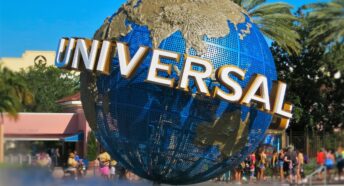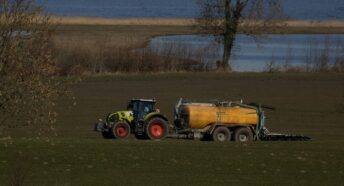Lower Thames Crossing debate
We will be debating the proposed new Lower Thames Crossing at an important public meeting next week.
Wednesday, 2nd March
St John’s Catholic Comprehensive School, Rochester Road, Gravesend, Kent DA12 2JW
Doors open 18:00 for 19:00 start
Organised by Gravesham Neighbourhood Forums, the speakers are CPRE Kent Director Hilary Newport and Highways England Consultation Manager Martin Potts. The meeting will be chaired by journalist Iain McBride with maximum time for questions.
Meanwhile we have raised our concerns about the implications for pollution of the proposed new crossing.
Alex Hills, Chairman of the Dartford and Gravesham branch of CPRE Kent, said: “We all know that pollution is a killer with the young most at risk and yet the route being promoted passes many schools. We find it baffling that Highways England is not going to do a full modelling of the impact on air quality until after the route has been chosen.”(1)
Highways England documents state that no parts of the south east meet the ambient air quality directive(2) and Gravesend and Rochester town centres already exceed safe pollution levels. Experts calculate that pollution accounts for 40,000(3) early deaths a year. Research has proven that pollution can cause asthma, strokes and heart attacks, so should be regarded as a serious health issue.(4)
It is for this reason the government is supposed to be working towards reducing UK emissions by 60%. Air pollution reduces brain function and development in children(5). A new tunnel and the associated road network leading to and from the tunnel will only lead to a worsening of air pollution levels in Kent and Essex.
Alex Hills said: “The increasing evidence on the effects of air pollution on people’s health makes the government’s insistence on a new road crossing indefensible. There needs to be a proper study into the alternatives. We have called for a sustainable transport strategy to ease congestion not just here but on the M20 and at Dover too.”
(1)Highways England document volume 6.4.3.6
(2)In 2015 the Supreme court ruled the UK had been in breach of the Ambient Air Quality Directive 2008/50/EC since 2010
(3)Royal College of Physicians-Channel 4 Despatches 22.2.2016
(4)Queen Marys Hospital London, Professor Jonathan Grigg and Edinburgh Royal Infirmary Professor David Newby, Channel 4 Despatches 22.2.2016
(5)Pompeu Fabra University Barcelona Professor Jordi Sunyer- Channel 4 Despatches 22.2.2016
For more information on our policy position click here.
February 25 2016.
- A number of important documents have yet to emerge. For example, a rigorous transport plan and a finalised air-quality assessment. The latter is critical given that allocations at Teynham will feed extra traffic into AQMAs.
- There seems to be no coherent plan for infrastructure delivery – a key component of the plan given the allocations being proposed near the already crowded Junction 7.
- There seems to have been little or no cooperation with neighbouring boroughs or even parish councils within Swale itself.
The removal of a second consultation might have been understandable if this final version of the plan were similar to that being talked about at the beginning of the consultation process. It is, however, radically different in the following ways:
- There has been a major shift in the balance of housing allocations, away from the west of the borough over to the east, especially around the historic town of Faversham. This is a move that raises many concerns.
- A new large allocation, with accompanying A2 bypass, has appeared around Teynham and Lynsted, to which we are objecting.
- Housing allocations in the AONB around Neames Forstal that were judged “unsuitable” by the council’s own officers have now appeared as part of the housing numbers.
- Most of the housing allocations being proposed are on greenfield sites, many of them on Grade 1 agricultural land – a point to which we are strongly objecting.
Concerns about the rush to submit the plan
The haste with which the plan is being prepared is especially worrying given the concentration of housing in Faversham. If the town is to take a large amount of new housing, it is imperative that the policies concerning the area are carefully worked out to preserve, as far as possible, the unique nature of the town. The rush to submit the plan is likely to prove detrimental.
As Swale does not have a five-year land housing supply, it is open to speculative development proposals, many of which would run counter to the ideas contained in the current plan. Some are already appearing. This is a common situation, and one that, doubtless, is a reason behind Swale’s haste.
Our overriding fear, however, is that this emphasis on haste is ultimately going to prove counterproductive. This is because it is our view that the plan, in its current form, is unlikely to pass independent examination. We are urging Swale to listen to and act upon the comments being made about the plan and to return the plan to the council with appropriate modifications before submitting it to the Secretary of State.
Essentially, this means treating the current consultation not as the final one but as the ‘lost’ second consultation.
The consultation ends on Friday 30 April and we strongly urge residents to make their opinions known if they have not already done so.
Further information










